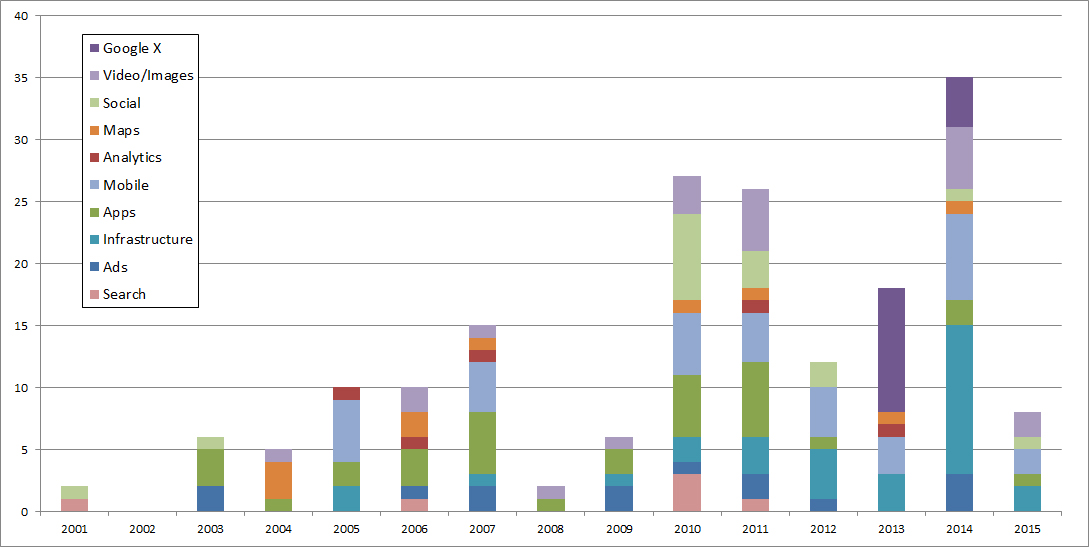If I consider the first 3 chapters of in the Plex as an amazingly great description of Google’s technology (chapter 1), business (chapter 2) and culture (chapter 3), the remaining chapters are also very good but I will not describe them in as much detail. Chapter 4 is about Google products that should be considered as based on two main features: they are fast and they are cloud-based (Gmail, Googledocs, Youtube, Chrome).
Sergey Brin even put a label on his cofounder’s frustration at the tendency of developers to load more and more features into programs, making them run way too slowly. Page’s Law, according to Brin, was the observation that every eighteen months, software becomes twice as slow. Google was determined to avoid this problem. “We want to actually break Page’s law and make our software increasingly fast over time,” says Brin. [Page 185]
And of course: Google often kept its products in beta much longer than other companies, signaling that users should be tolerant of faults and that an update was probably around the corner. In the case of Gmail, which became the public name for the project, the beta label was not removed until five years after Google released it, when it had tens of millions of users. [Page 171]
What’s also interesting is they’ve not always been built internally but also through acquisitions (JotSpot, Upstartle, Zenter, Android and many others – check the list of Google acquisitions – https://en.wikipedia.org/wiki/List_of_mergers_and_acquisitions_by_Google – with my short analysis below)
This reminds me a quote of Richard Newton: “Silicon Valley and the Bay Area are cradles of innovation.” And he further added, stating a colleague of his: “The Bay Area is the Corporation. […When people change jobs here in the Bay Area], they’re actually just moving among the various divisions of the Bay Area Corporation.”
I will let you discover the long analysis around concerns for privacy (Pages 179-78) but cannot avoid a final quote: It wasn’t Google’s job—nor should it be—to filter […] personal information. Griffin understood how [Eric Schmidt] felt, because she came across upset people all the time. You could explain forever how making obscure but damaging information available in milliseconds was at the core of Google’s lofty mission. “Principles always make sense until it’s personal,” she says. […] “My personal view is that private information that is really private, you should be able to delete from history,” Schmidt once said. But that wasn’t Google’s policy. If Google’s own CEO had trouble dealing with privacy, how could ordinary people cope? [Page 175]
Google acquistions
As of August 2015, Google had acquired 182 companies (136 from the US, 26 from Europe, and 20 in the rest of the world) for more than $26B. here is a visual description of the fields and years.



